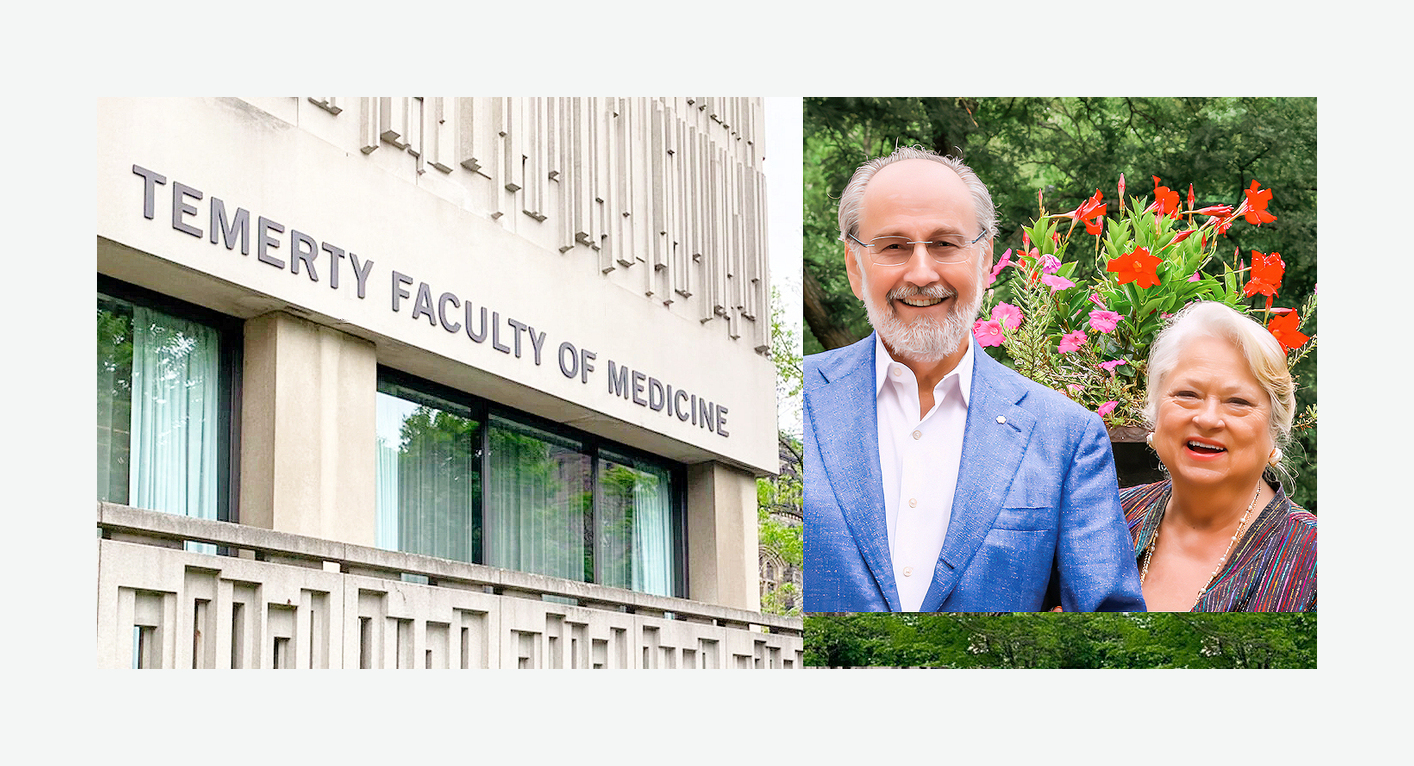$250 million benefactors, James and Louise Temerty expand university’s “Hold ’em for Life” cancer research program, backing 18 early-career professors

In a bold step to accelerate cancer research and improve patient outcomes, the University of Toronto’s Temerty Faculty of Medicine has announced the expansion of the Hold ’em for Life Early-Career Professorships in Cancer Research.
With six new appointments in 2025, the program now supports 18 early-career clinician-scientists across U of T and its affiliated hospitals.
The 2025 cohort of Hold ’em for Life Early-Career Professors includes six outstanding clinician-scientists whose work spans multiple areas of cancer research and care:
Tomohiro Aoki
Assistant Professor, Department of Medicine, U of T
Princess Margaret Cancer Centre/UHN
Focus: T-cell lymphoma—unveiling novel therapeutic targets.
Joel Davies
Assistant Professor, Department of Otolaryngology – Head and Neck Surgery, U of T
Sinai Health
Focus: Head and neck oncology—virtual surgical planning to enable earlier rehabilitation.
Deepak Dinakaran
Assistant Professor, Department of Radiation Oncology, U of T
Sunnybrook Health Sciences Centre
Focus: Biophotonics—precision radiation using radioPDT nanoparticles.
Keith Lawson
Assistant Professor, Department of Surgery, U of T
Princess Margaret Cancer Centre/UHN
Focus: Genitourinary cancers—developing next-generation cellular immunotherapies.
Farshad Nassiri
Assistant Professor, Department of Surgery, U of T
Princess Margaret Cancer Centre/UHN
Focus: Brain cancer—leveraging the immune microenvironment of meningioma to identify new therapies.
Robert Vanner
Assistant Professor, Department of Medicine, U of T
Princess Margaret Cancer Centre/UHN
Focus: Hematologic cancers—interrogating clonal hematopoiesis to develop precision cancer care.
This milestone reflects a sustained and transformative commitment to medical discovery and education from both the Hold ’em for Life Charity Challenge and the Temerty family.
Their support spans key areas, including medical education, neuroscience, and cancer research.
“This expansion will ensure the continued training and retention of top physician-scientists right here in Toronto,” said Lisa Robinson, Dean of Temerty Medicine and Vice-Provost, Relations with Health Care Institutions.
“By building a pipeline from fellowships to early-career professorships, the Hold ’em for Life program—and the extraordinary generosity behind it—is creating lasting impact across our entire academic health network.”
Launched through a landmark gift in 2023, the Hold ’em for Life Early-Career Professorships aim to empower the next generation of cancer researchers at the most critical point in their careers.
With the latest cohort of six outstanding scientists—whose work covers fields from brain cancer and hematologic malignancies to surgical innovation and precision radiation—the program continues to foster innovation city-wide.
Since its founding in 2006 by Andrew Hoffman, CEO of CentreCourt, and Tony Reale, Hold ’em for Life has raised tens of millions of dollars through its signature gala poker tournaments.
The funds have supported over 200 cancer research fellowships, in addition to the 18 professorships, marking a deeply strategic investment in Toronto’s cancer research ecosystem.
The broader philanthropic vision of the Temerty family, led by James and Louise Temerty, has also left an indelible mark on the University of Toronto.
Their historic $250 million donation established the Temerty Faculty of Medicine and strengthened education, research, and clinical care in the health sciences.
With subsequent and ongoing commitments, including through partnerships such as Hold ’em for Life, their total giving to the university now surpasses $70 million, designated explicitly toward cancer research and related innovation.
“These professorships are not just awards—they’re a catalyst,” said Robinson.
“They give brilliant young scientists the foundation they need to make breakthrough discoveries, improve therapies, and ultimately transform lives.”
As Toronto continues to lead globally in cancer research, the combined efforts of visionary philanthropists and academic institutions are ensuring that life-saving innovations begin at home—and reach far beyond.

